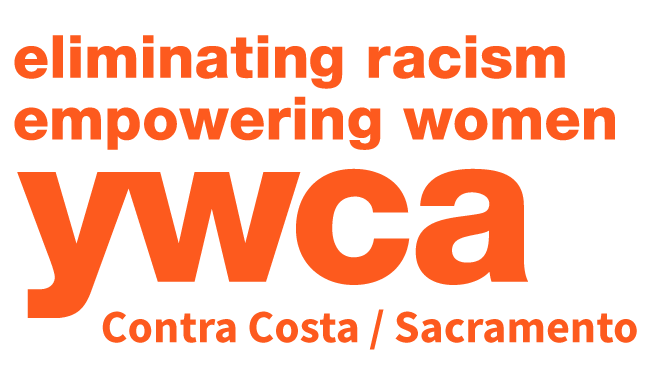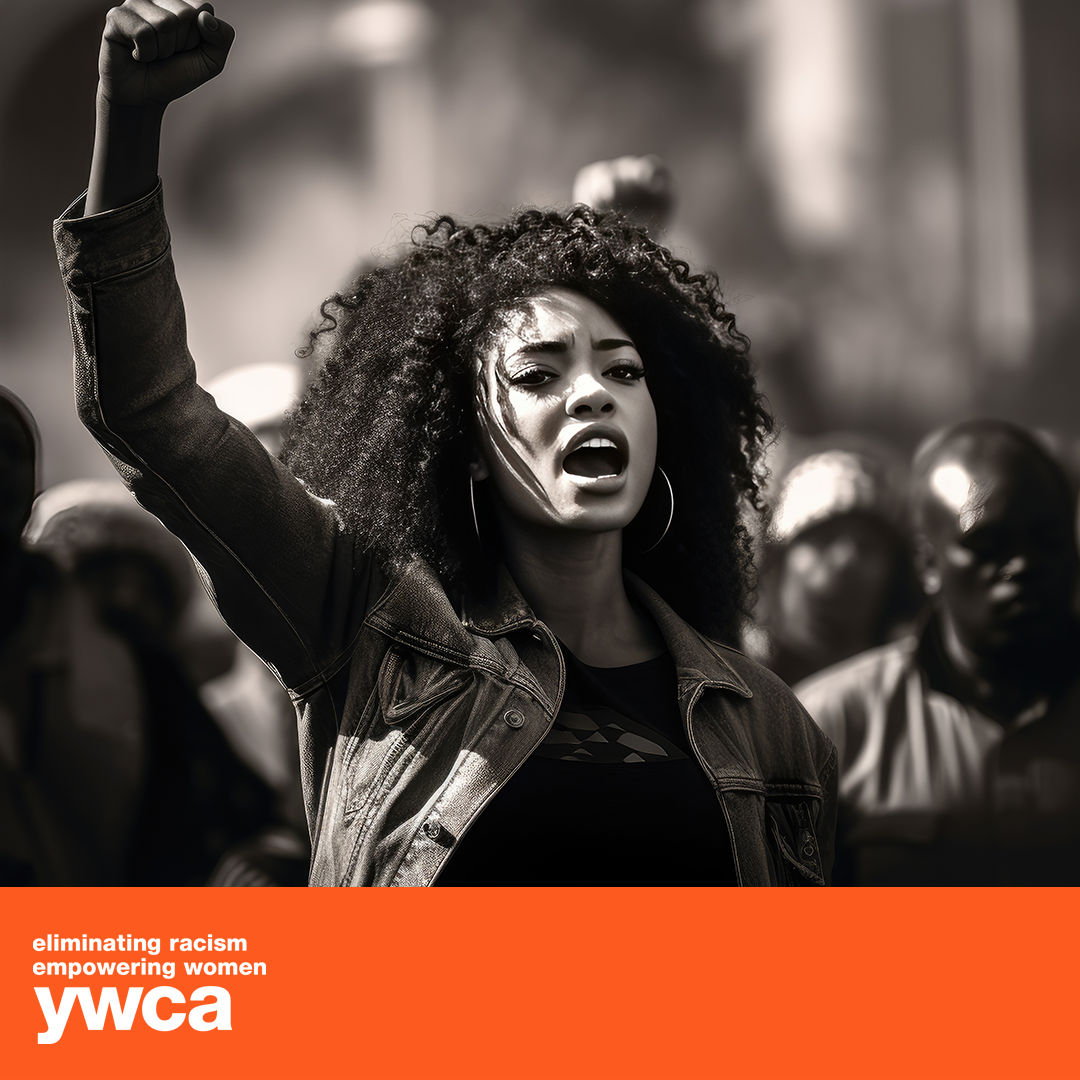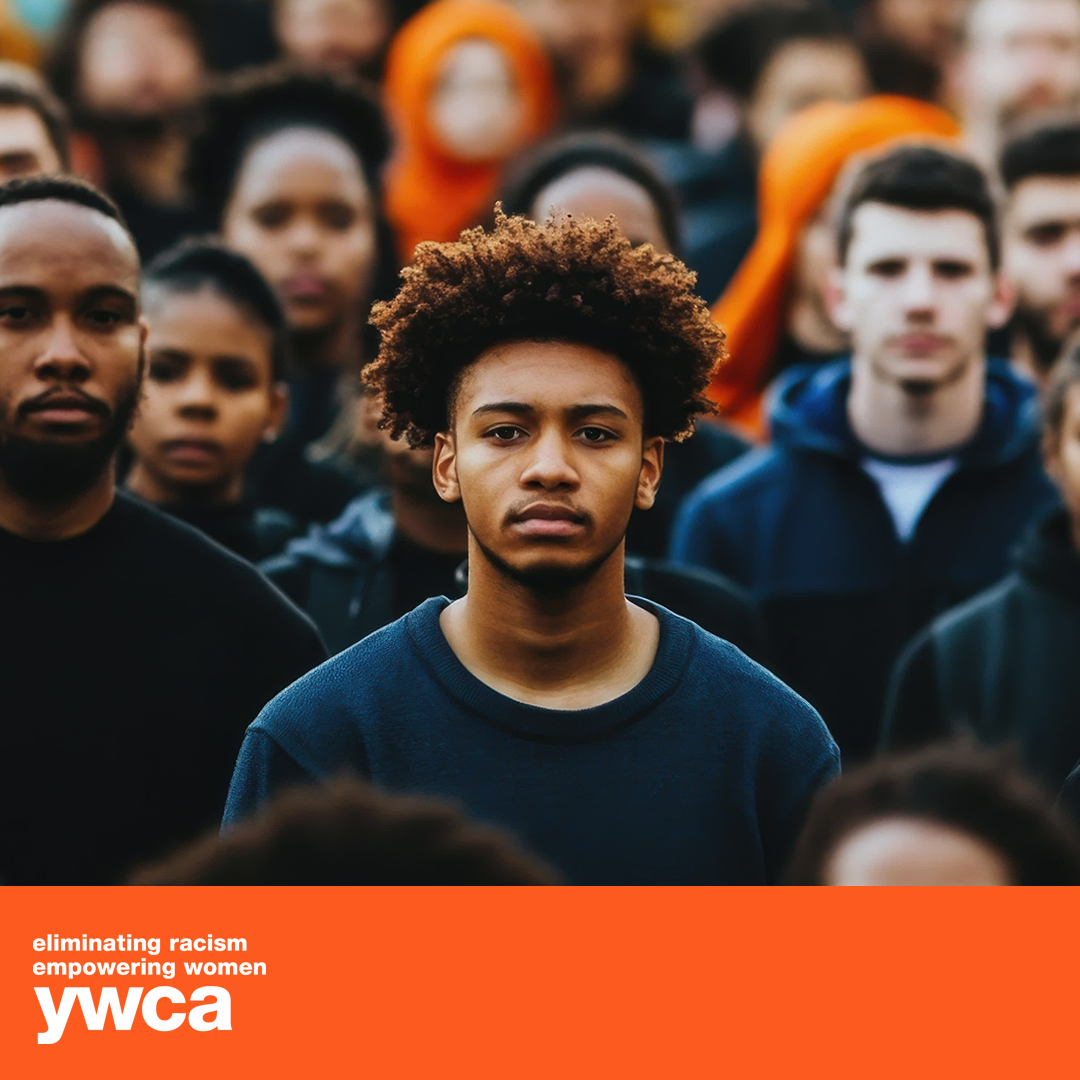The Unsung Legacy of Black Feminism: From Jane Crow to Intersectionality
At YWCA, our mission is inspired by the perspectives of Black feminists who have consistently transformed the fights for gender equity and racial justice. During Black Herstory Month, we’re celebrating Black feminism and centering the work of powerful Black sheroes past and present doing the critical work to eliminate racism and empower women. As leaders in the women’s empowerment and racial justice movement, it is our duty to uplift and center the Black feminist voices that have been the backbone of feminist and civil rights movements. Therefore, we are proud to uplift the unsung legacy of Black feminism, from Jane Crow to intersectionality.
Over the last century, Black feminists like Pauli Murray and Kimberlé Crenshaw have created terminology and tools that have helped many of us to work towards collective liberation. It was in 1947 at Howard University that civil rights advocate, lawyer, and ordained priest Pauli Murray coined the term “Jane Crow”. Pauli Murray’s articulation of Jane Crow alluded to the system of Jim Crow, which often focused on the experience of Black men. Additionally, this term informed her critiques of the male-dominated civil rights movement, arguing that women should be foregrounded within the movement because racial and gender-based oppressions combine to circumscribe Black women’s freedom and must be battled in tandem to ensure ALL Black people are treated equitably.
More recently, pioneering civil rights advocate, professor, and leading critical race theory scholar Kimberlé Crenshaw built upon Murray’s legacy when she coined the term “intersectionality” in 1989. In her own words, Crenshaw described intersectionality as “a lens through which you can see where power comes and collides, where it interlocks and intersects. It’s not simply that there’s a race problem here, a gender problem here, and a class or LGBTQ problem there. Many times, that framework erases what happens to people who are subject to all of these things.” Crenshaw’s work was derived from her experience as a Black woman, however, intersectionality can be applied to the analysis of power and privilege across the spectrum by helping us understand how individuals who experience compounding inequalities are the most equipped to lead all of us in the fight for equity and collective liberation.
Throughout the years, many women have contributed to the unsung legacy of Black feminism through their work, building upon their fore sisters and ensuring the wisdom of Black women is heard. Some of these empowered women include:
- Dorothy Height: The godmother of the civil rights movement, leader of the National Congress of Negro Women for over 30 years, and former Director of YWCA Harlem who advanced YWCA’s One Imperative, which fuels our intersectional mission to eliminate racism and empower women. Dr. Height consistently pushed movements to be more inclusive by centering Black women in her activism.
- Alice Walker: An award-winning novelist, poet, and social activist who coined the term “womanism” in response to how Black women are treated in feminist spaces to ensure they had space to center their own experiences, priorities, and concerns in the movement.
- Roxanne Gay: A New York Times best-selling author, professor, and social commentator whose essay collection “Bad Feminist” challenges us all to humanize the flaws within feminist and social justice movements while inspiring us to be better allies and co-conspirators.
All during #BlackHerstoryMonth, we will continue our work of empowering women and eliminating racism by uplifting these and many other incredible Black feminists whose work inspires, informs, and guides so many advocates for equity and justice.
We are thankful for the work of these powerful thought leaders, which has been monumental in how feminism has evolved to become more inclusive. Black feminists like Pauli Murray, Kimberlé Crenshaw, and Dorothy Height have been and continue to be at the forefront of how we all think, strategize, and co-conspire to address interconnected systems of inequality. Their contributions, in addition to many others, consistently push us all to examine our intersecting privileges and challenge social justice movements to be more inclusive. Through their work, Black feminists invite us all to work together with respect to our differences to build a better world where injustice is rooted out for everyone. We are forever grateful for their calls to action which bring attention to the intersection of race and gender and informs YWCAs across the country doing the work to eliminate racism, empower women, and create a world of peace, justice, freedom, and dignity for all.
Join us as we continue to uplift the lives, experiences, and contributions of Black feminists throughout the month of February by following us on Twitter, Facebook, and Instagram. You can also join the conversation using #BlackHerstoryMonth, #BHM2022, and #EmpoweredWomen to highlight the unsung legacy of Black feminists in your community





